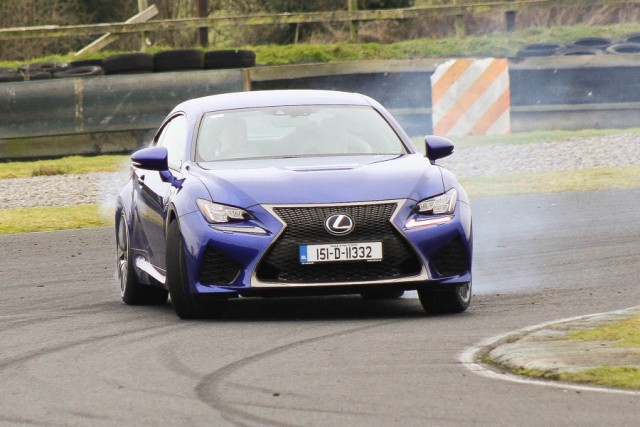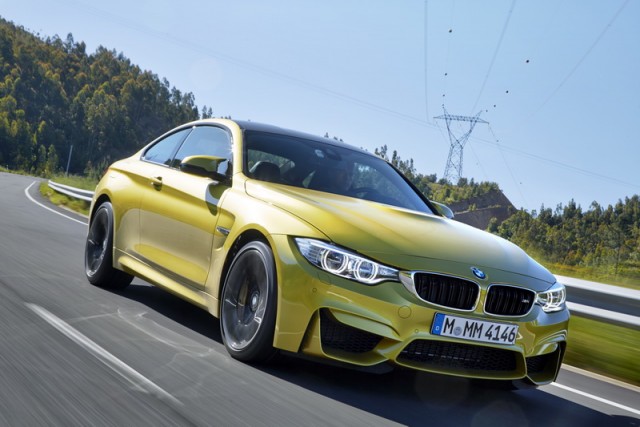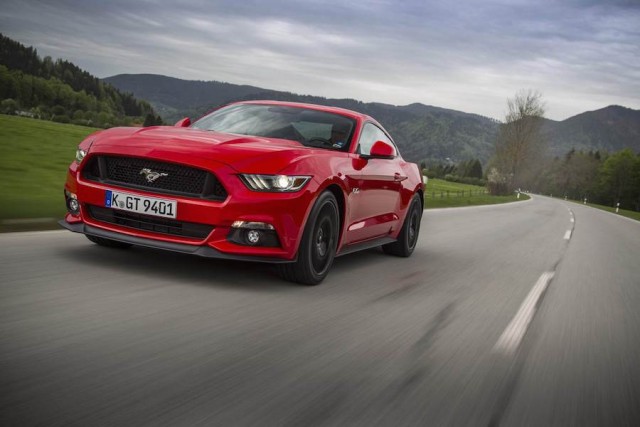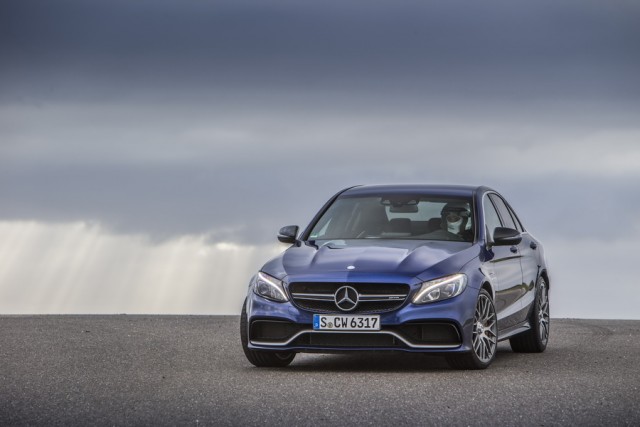Good: gorgeous to look at, stunning cabin, quality, wonderful engine
Not so good: heavy, thirsty, useless back seats
Some people tend to think of Lexus as a bit of a staid brand. A brand obsessed with comfort and quietness, with bringing down emissions through the application of clever hybrid technology and with reducing shut-lines to the width of a laser-measured credit card.
And that's all true - those are the values upon which the edifice of Lexus has been built, and it all stems from that original, wonderful LS 400 of 1990. Exciting it may not have been, from a pure driving enthusiasm point of view, but just sit back and feel the comfort. Glorious, in its own way.
It's your first exposure to a brand that sets your expectations of it, more or less (but not literally, of course) in stone. So, that's why most people expect BMWs to be sporty, or cars from Mercedes-Benz to be haughty. That's what they grew up with. Lexus and me though? We had a bit of an odd beginning...
Remember the first generation IS 200, launched in 2000? It was a perfect riposte to the BMW 320i - a small, rear-drive, light and compact saloon with sharp styling and an interior inspired by Swiss watches. Its jewel-quality 2.0-litre straight-six engine might as well have been inspired by them too, so perfect and smooth was its movement; all it lacked was a bit of oomph. That was provided, optionally, by a tiny but effective supercharger, developed by Toyota's motorsports arm, Toyota Team Europe (TTE). A rare thing, to see a TTE supercharged IS 200, but that was the first Lexus I ever drove, and it has coloured my view of the brand ever since. It was an utter delight of a car - deft of steering, crisp of engine note and so happy going sideways that I got out to check that someone hadn't just stuck some Lexus badges on an MkII Escort. Loved it.
Anyway, such is the legacy that it has left me rather better disposed to the addition of the RC F to the Lexus range than, perhaps, some of my colleagues. Some of my colleagues who believe that it's pure folly for Lexus to be trying to take on the might of BMW M or Mercedes AMG or Audi quattro GmbH - stick to the luxury and the hybrids, they say.
Yes, but, I say, have you seen the spec of the RC F? A tight, muscular coupé shell based on the already impressive IS 300h saloon and instead of the turbo-force-fed engines of the current BMW M4 Coupé or Mercedes-AMG C 63, a proper, unadulterated, naturally-aspirated V8 engine heaving with a full-on five litres of swept capacity. How can this be a bad thing?
Now, I know not everyone loves the current origami style of Lexus design, with that massive fanged grille and many needless creases, but I'll admit I'm a fan. It's not necessarily pretty, as such, but certainly distinctive and a lot more interesting than the me-too stuff coming out of Munich or Stuttgart these days.
Inside the Lexus, I think we can find a little more common ground - this is a cabin that frankly kicks the arse off of anything with a German badge - it's beautifully built, almost perfectly laid out and with gorgeous instruments to boot. The seats are both capacious and body-hugging and Lexus has thankfully long since kicked the habit of chucking in a few cheap-o switches from the Toyota Avensis - aside from the old-style cruise control stalk that is hanging around like an old Dunnes Stores sock, abandoned in the Hugo Boss changing room.
While we're on the critical trail, what has happened to the space in the back seats? The IS 300h, on which the RC coupé is based, has plenty of room in the back, so how come the coupé is so woefully short on legroom? A BMW M4 is a positive MPV by comparison...
Another criticism - the RC F is heavy, weighing in at 1,700-odd-kg, which is about 200kg heavier than the BMW - and this plays obvious havoc on both efficiency and dynamics.
Presumably, much of that weight is down to the apparently old-school V8 in the front. It's massive - you just don't get many 5.0-litre engines anymore, whereas the BMW deploys a lighter, turbocharged straight-six. Mind you, the BMW also feels the need to use a sound-booster built into the stereo to make its engine sound more manly. The Lexus needs no such fripperies - its V8 soundtrack comes from eight actual cylinders, starting with a low-down-Paul-McCartney-backbeat and rising to a Le-Mans-at-3am shriek when you rev it out to its surprisingly high 7,100rpm power peak. At that point, you're developing 483hp, which is a lot more than the M4 gives you.
Mind you, as you'd guess from the numbers, it is a bit peaky. An M4 would murder it off the line thanks to its superior torque and lower weight, even if the Lexus would sweep past given a long enough straight. You need every cog in the fast-reacting eight-speed gearbox if you're to keep the turbo brigade at bay.
It's also a staggeringly thirsty thing. In an age when BMW's M cars can hit 35mpg in daily driving, Lexus' official 26mpg is a bit hefty, and that's not even a realistic figure. In spite of the fact that the engine can switch to the fuel-saving Atkinson Cycle (taking an extra breath of air during the combustion cycle) when under low throttle loads, you're going to be stopping for more fuel more often.
And does the weight kill the handling? Well, that's an interesting one. You see, on a track, driving at 10/10ths, you'd have to say yes - the M4 would be lither, easier to hustle around a corner and basically quicker and better than the RC F. On the road, though, I'm not so sure. In fact, I'd say, up to about 7/10ths effort (and if you're pushing any harder than that your next appointment is going to be with the Supreme Court) I think the Lexus is actually a bit more forgiving, and a bit nicer to drive than the BMW. The steering, certainly, has a lighter, less artificial weight to it and feels sweeter and truer, especially thanks to a wheel that's nicer to hold than the M4's pillow-thick rim. The balance feels really good too - you can get the tail out, but it requires more effort than the M4, which on the road is probably a good thing. The ride is pretty relaxed if you stay out of Sport+ mode too, which is a good thing when you're just trying to get to work.
I know, I know - there are those who will say that a V8-engined sports coupé shouldn't be bothered with being comfortable and practical, but I call shenanigans on that - for €106k a car should do exactly what you want it to do when you want it to do so. And should get up in the morning and make you a cup of tea too.
But anyone who says that the RC F isn't exciting or can't match a BMW M4 is, frankly, talking out of their hoop. Is the M4 better? Maybe - in extremis, yes - but on the road, the RC F is actually a pretty good foil for the M4. It's not better, but it is certainly different. It carries a different emphasis on different talents, and that is only to be applauded.
One final thing, if you are actually thinking about buying one of these cars and owning it for a long time, this might actually be a useful anecdote: long ago, in a former life, I took a Lexus IS F and a BMW M3 (V8-engined, E92) to the track, to Mondello Park to be exact. During a day's lapping (actually two separate days, but under very similar conditions) the M3 cooked both its tyres and its brakes within a few laps. The IS F? Just kept on circulating, lap after lap after lap. Something tells me the RC F will prove equally indestructible.


















































